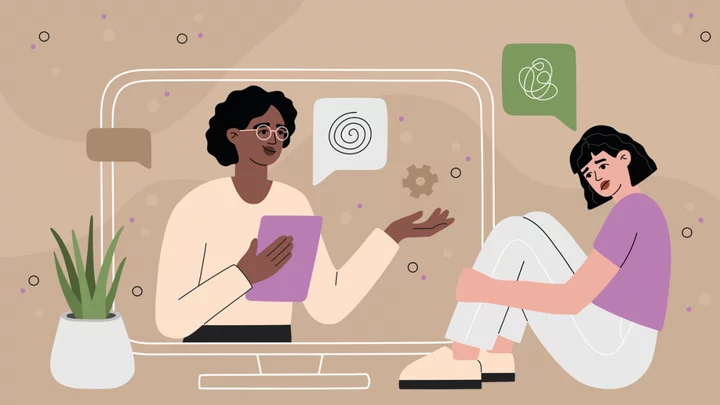These are trying times. The pandemic has left us steeped in worry, grief, and isolation. The fundamental rights of many of us are up for disastrous debate online, in legislative bodies, and in courts. The economy is teetering. AI is threatening to take over entire industries. And of course, there are the many personal issues we all experience.
This is to say, it's a good time to talk to a therapist. Yet over half of Americans with mental health issues do not receive treatment. Because while everyone can benefit from therapy, not everyone can access it.
Cost is the biggest concern, even for those with health insurance—not all plans cover the treatments they may need. Emotional factors might also prevent someone from seeking help, not to mention practical ones involving time and transportation. And increasingly, many of those who do reach out to try to make a therapy appointment can't get one, because many therapists aren't taking new clients.
Is Online Therapy a Good Idea?
Online therapy can remove at least some of these obstacles. It might seem strange to conduct something as intimate as therapy on a smartphone, PC, or tablet, but having an in-home talk with a mental health professional can help ease the fear of stigma and the awkwardness that some feel in seeking a therapist’s assistance. It also allows for sessions at varying times of day, such as late in the evening, and removes travel complications. Then there's price: Online therapy is often more affordable than an in-office visit, particularly for those without insurance.
Before the pandemic, conducting therapy sessions online was seen as a sideline for many therapists. But once therapists gave up their costly offices and moved to telehealth, many found it did not pay to see patients in person. Almost one-third of psychologists conduct appointments online only.
If you’re interested in finding a therapist, you might find that one who has been recommended to you is available for online sessions. But more than likely, you’re starting your search on your own. It can be an overwhelming process, so we’ve put together this guide to sites and apps that offer mental health services in the form of one-on-one therapy via video and text.
Is Online Therapy Safe?
You may have read about troubling privacy and security practices with some apps. We have flagged those issues under each relevant listing.
Some other caveats before you sign up: Make sure the professional you're speaking to is a licensed therapist. That means checking to see whether they're a psychiatrist (an M.D. or D.O.), licensed psychologist (Ph.D., Psy.D., or Ed.D.), licensed psychological associate (L.P.A.), licensed professional counselor (L.P.C.), licensed clinical social worker (L.C.S.W.), or licensed marriage and family therapist (L.M.F.T.).
Then make sure the site or app you'd be using is HIPAA-compliant, which means it meets federal privacy standards that apply to health care. Each site we include on this list is HIPAA-compliant.
One thing to keep in mind throughout your journey with seeking therapy is that you’re not alone. There has been a serious uptick in anxiety and depression worldwide in the past few years, but along with it comes an increased awareness that mental health issues are nothing to be ashamed of. Finding a therapist who's right for you can bring about many positive changes in your life. And the first step might be found on the list below.
If you are experiencing an immediate mental health crisis, call or text the National Suicide Prevention Lifeline at 988. You can also use their online chat at 988lifeline.org.









